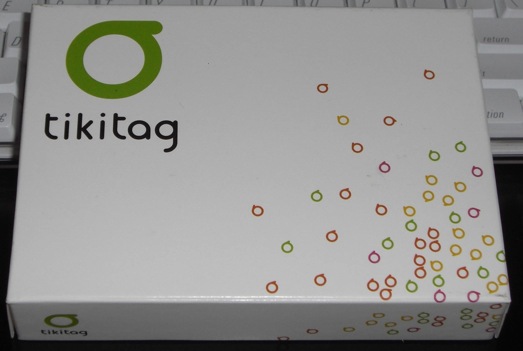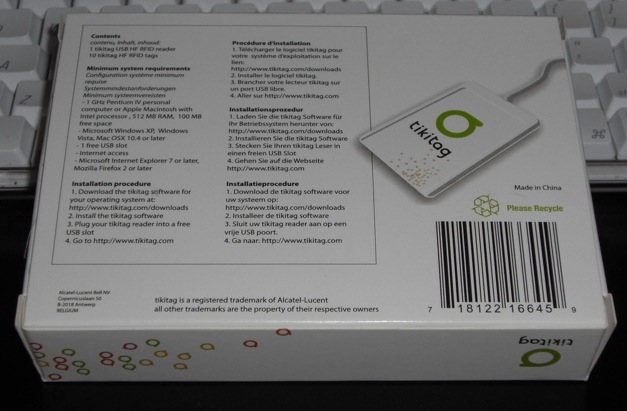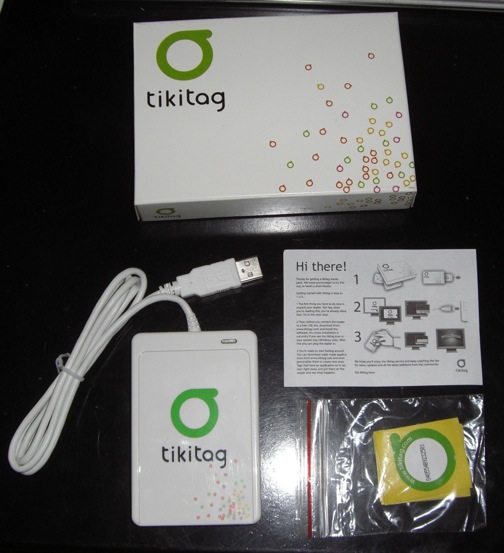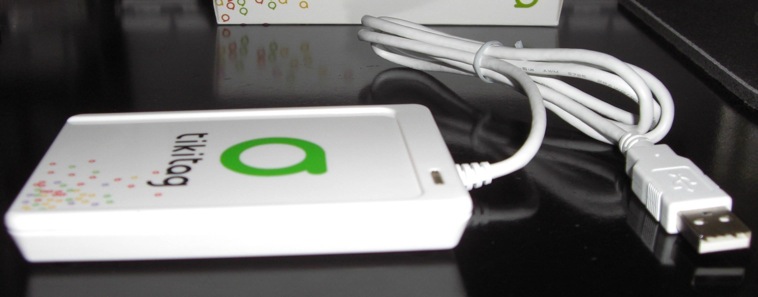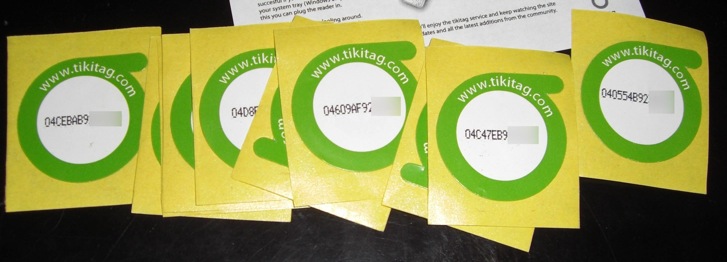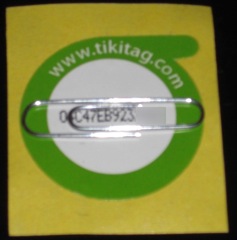I have to say, I’m pretty impressed. I just upgraded my Comcast internet service from the 8 Meg service to the 16Meg and went from 16033 kbps (2004.1 KB/sec transfer rate) to 21448 kbps (2681 KB/sec transfer rate). Both tests were run against Chicago. Not too shabby!

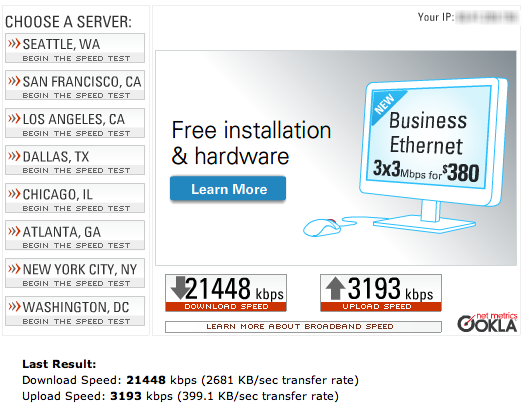
Tag: Internet
The New Social Computing Platform
The GPS system gathers data from multiple sources (satellites, compass, GIS data, time, maps, etc.) and combines that to deliver a relevant and useful information to the driver, i.e. If the Internet revolution brought communication and data to every corner the world, the information revolution will fundamentally alter the way we interact and depend on that data.
For my senior professional ethics course, our first assignment was to write a short essay on a social, privacy, Internet or legal issue related to technology. I choose to write about social computing and would like to share my essay with you.
The Internet has brought the world the ability to instantly communicate with anyone, anywhere. Communication via the Internet has been the foundation for the global communications market and the driving factor behind the flat world concept. As the networks and applications become more and more web driven, powered, enriched and functional, human interaction has become the tight fiber that has been woven into an extremely complex fabric that has blanketed the world. Thus the spawn of email, listsrvs, message boards, search engines, instant messaging, productivity and collaboration tools, and in the most recent iteration social networking web applications. While these systems may seem unrelated, all share the same backbone: data.
Data is the new telephone. The new television. The new computer. Data is everywhere yet nowhere. Data is the reason technology continues to progress and will continue as long as thought is considered relevant. With data only continuing to grow and expand, interaction and analysis of that data will become more and more valuable. We see this in the world today as the jobs in the workforce slowly but surely change from labour based to information centric. And although the need for physical labour is still important in some industries, many once physical tasks can now be processed by highly efficient machine and robotic equipment. What was once the industrial revolution has turned into the information revolution.
Information brings meaning and function to data. As a byproduct of this definition, machines and devices have been created to help bring better meaning to seemingly useless or unusable data. For example, a speedometer in a vehicle uses the data gathered by rotation sensors on the axels to determine what the speed of the vehicle is and display that information to the user. As a more complex example, consider an in-vehicle GPS navigation system. The GPS system gathers data from multiple sources (satellites, compass, GIS data, time, maps, etc.) and combines that to deliver a relevant and useful information to the driver, i.e. driving directions. Information is the reason communication applications and platforms have evolved into their current iteration of social networking sites. As a paradigm, the Internet and associated technologies and networks have been restricted to virtual objects and environments. The virtually unlimited nature of this system is also what will drive the next shift in technology use.
As objects and elements in the real world become network capable (especially wirelessly), the way in which the real world interacts with technology will change dramatically. If the Internet revolution brought communication and data to every corner the world, the information revolution will fundamentally alter the way we interact and depend on that data. As an example, look at the Tricorder and communicator devices made famous by the television series Star Trek. The Tricoder device acted simply as an information analysis tool, gathering data and reporting it to the user in a handheld form and communicator as a simple yet functional mobile phone. While extremely ahead of their time, the evolution of technology has now reached the tip of that iceberg.
Portable communication devices have evolved from hand-held radios into cellular phones and most recently into handheld computing devices. Blackberries and iPhones are commonplace in today’s connected society and have allowed people to access virtual environments and information without being tied down to a physically connected machine. But the Internet paradigm has started to shift directions. The ease of use, standardization and compatibility of networking protocols and technology has created a virtual environment with nearly limitless addresses. At the same time, more and more real world objects are becoming Internet connected: refrigerators that can order more food based on expiration dates, microwaves that can fetch cooking instructions via the web, environmental control systems that can be remotely monitored and maintained, safety and security products, etc. With this ever expanding system of data, technology is beginning to adapt and adjust. All the previously listed examples could easily be remotely managed via a web browser interface, bridging the virtual and real worlds and over time can be expected to expand beyond just the home, office or localized environment.
The new concept of social computing is based on socially interacting with tangible real world objects/systems and is heavily dependent on the shift towards mobile communication technologies. Imagine at home, having the ability to control everything (lights, temperature, appliances, electronics, etc) from your mobile communication device (iPhone, Android based device, etc). Then as the user travels to work, location based data from the same communication device is feed to a community of other users and effectively produces relevant information (i.e. travel information, traffic congestion, etc) for the community as a whole. Upon arrival at the office, the user is granted access to secured facilities and systems based on authentication and verification of data gathered from the communication device and other connected sensors. For this reason, current social networks (i.e. Facebook, MySpace, etc.) would more adequately be called socially computing networks where peer based interaction is the driving force. Real world applications and implementations hold the more pertinent definition of social computing as these systems are less peer based and more information driven. Data is dead. Vive l’information.
Copyright 2008 Nicholas Gangadharan
All Rights Reserved.
tikitag unboxing
The box and packaging is very minimal and the tags are very, very small. The tag is about the width of a small paperclip.
Web Host or Web Ghost?
Not being familiar with how the domain names and hosting worked, it took me about a week to figure out that I needed to pay for hosting in addition to buying the domain name. Since the prices for dedicated hosting were astronomical compared to that of shared/resold hosting, I decided to narrow my search down to something within my price range.
Once upon a time, many a year ago, the internet was born. And with that came the need for web hosting companies (web-hosts). Soon the land was filled with hosts, some dedicated and others just resellers of the more expensive services.
On a nice Winter day in 2001, I purchased my very first domain name for ten years! Not being familiar with how the domain names and hosting worked, it took me about a week to figure out that I needed to pay for hosting in addition to buying the domain name. This is where my web hosting adventure begins.
While I can’t remember the name of my first webhost, I do recall they were limited to static HTML pages with no included database technologies and cost me about $5/month. At the time, that was a lot of money to me. That web host worked out very well for me, considering my site was statically generated using Microsoft Frontpage 2000. Unfortunately, that web-host went out of business and decided to transfer all their customers to their "parent". I use the term parent loosely because they were really just the wholesale distributor of hosting service. It was this experience that opened my eyes to some of the real workings web-hosting online. Any Joe Schmo can buy hosting in bulk from a larger company and resell it in smaller packs. Not a bad idea on paper, but obviously not the best for the customer either. This was the end of my experience with my first hosting company.
 As I went back to the tubes to try and find another host company, I found it hard to gauge wether or not a web-host had their own servers or was just reselling for another company. Since the prices for dedicated hosting were astronomical compared to that of shared/resold hosting, I decided to narrow my search down to something within my price range. After doing a bit of research, I decided on a company called based Reyox, out of Seattle, Washington. At $9.95/month I thought it was a pretty fair deal. At the time, I selected Windows hosting (not really knowing anything different) and I continued to use Frontpage to build static sites. It wasn’t until I started to build more dynamic sites that I became frustrated with Reyox. At one point all of the Reyox sites got hacked my some hackers in Hungary. My entire site was destroyed along with some of my friend’s sites that I had recommended to Reyox. During my time with Reyox, I always thought it was interesting that when I contacted the support people, I would always be dealing with the same person, Asher Saeed. It wasn’t until after I left Reyox that I realized he owned Reyox and was the only person running the show.
As I went back to the tubes to try and find another host company, I found it hard to gauge wether or not a web-host had their own servers or was just reselling for another company. Since the prices for dedicated hosting were astronomical compared to that of shared/resold hosting, I decided to narrow my search down to something within my price range. After doing a bit of research, I decided on a company called based Reyox, out of Seattle, Washington. At $9.95/month I thought it was a pretty fair deal. At the time, I selected Windows hosting (not really knowing anything different) and I continued to use Frontpage to build static sites. It wasn’t until I started to build more dynamic sites that I became frustrated with Reyox. At one point all of the Reyox sites got hacked my some hackers in Hungary. My entire site was destroyed along with some of my friend’s sites that I had recommended to Reyox. During my time with Reyox, I always thought it was interesting that when I contacted the support people, I would always be dealing with the same person, Asher Saeed. It wasn’t until after I left Reyox that I realized he owned Reyox and was the only person running the show.
 My next stop in the web-hosting world was a company called MediaTemple. I was referred to them by a friend who had raved about their exceptional service, customer service and automated tools. At $20 a month, MediaTemple was more expensive compared to Reyox, but I needed a reliable host with no BS. During my first year of service with MediaTemple, I was relatively happy with their service. They offer all the services you would expect from any Linux provider: PHP, Apache, MySQL, ssh acces, etc. It wasn’t until after my first year that I really started to experience problems. The problems started with the MySQL and PHP simply flaking out at any time up for up to 10 minutes at a time. When I first contacted the support team at (mt), they told me it was because there was a heavy load on my sites. At first I just accepted their explanation, but when it started to happen on a daily basis, and especially when I was working on web projects for my classes I couldn’t stand it anymore. As you can see from the MediaTemple , the issues were originally documented by (mt) at the end of February and continued all the way through May 14, 2008. If you ask me, that is unacceptable for any host. I was giving a presentation for one of my academic projects and the web app completely crapped out. It was right then that I decided Media Temple had to go.
My next stop in the web-hosting world was a company called MediaTemple. I was referred to them by a friend who had raved about their exceptional service, customer service and automated tools. At $20 a month, MediaTemple was more expensive compared to Reyox, but I needed a reliable host with no BS. During my first year of service with MediaTemple, I was relatively happy with their service. They offer all the services you would expect from any Linux provider: PHP, Apache, MySQL, ssh acces, etc. It wasn’t until after my first year that I really started to experience problems. The problems started with the MySQL and PHP simply flaking out at any time up for up to 10 minutes at a time. When I first contacted the support team at (mt), they told me it was because there was a heavy load on my sites. At first I just accepted their explanation, but when it started to happen on a daily basis, and especially when I was working on web projects for my classes I couldn’t stand it anymore. As you can see from the MediaTemple , the issues were originally documented by (mt) at the end of February and continued all the way through May 14, 2008. If you ask me, that is unacceptable for any host. I was giving a presentation for one of my academic projects and the web app completely crapped out. It was right then that I decided Media Temple had to go.
 I’m now on a new host. One that is owned called Mosso. They pride themselves on offering both Apache/IIS 7 and everything you would expect from both of those. At $100 a month, it is the most expensive host I have ever used, but it definitely has paid off. I have been on them for 3 months now and from a service standpoint, I have been really happy with the performance of the sites, databases and server side scripting processing. In my opinions, the only thing missing in Mosso is SSH shell access, but I hear it’s on the way. Mosso also has one of the best Reseller interfaces available from any host I’ve used, especially for web developers who handle everything for their customers.
I’m now on a new host. One that is owned called Mosso. They pride themselves on offering both Apache/IIS 7 and everything you would expect from both of those. At $100 a month, it is the most expensive host I have ever used, but it definitely has paid off. I have been on them for 3 months now and from a service standpoint, I have been really happy with the performance of the sites, databases and server side scripting processing. In my opinions, the only thing missing in Mosso is SSH shell access, but I hear it’s on the way. Mosso also has one of the best Reseller interfaces available from any host I’ve used, especially for web developers who handle everything for their customers.
Overall, I’ve been very happy with Mosso and I would recommend their service to anyone looking for excellent web hosting. I know the price is a bit steep, so if anyone is interested just post a comment and we can work something out with the reseller interface.
Take Note!
I, of course, have been using my laptop coupled with my favorite note taking app for Windows to take notes (paper + pencil is so archaic, duh). On that note, I have to say I am so sick of seeing people use Microsoft Word (Mac + PC) to take notes for classes.
After enjoying a couple months off from school, I find myself back in class four days a week learning basic biology. I, of course, have been using my laptop coupled with my favorite note taking app for Windows to take notes (paper + pencil is so archaic, duh). But for the first time in my academic career (outside my computer science classes, I should say), at least 1/2 of the students in the class are also using notebook computers to take notes! This is great proof that my generation (± a few years) are becoming more comfortable using computers for more than just Internet, email and media.
On that note, I have to say I am so sick of seeing people use Microsoft Word (Mac + PC) to take notes for classes. While most people immediately flock to the o-so-familiar Microsoft Word app to record text, there quite a few applications for both platforms that perform much better for the task at hand.
Starting with OS X (as I started my note taking career on a Powerbook), there are of course the usual suspects: TextEdit (included with OS X) and Microsoft Word for Mac ($149). These two apps will do the job, but not very well. TextEdit is limited in functionality and Microsoft Word is heavy and not Intel native. This is where The Omni Groupcomes in. When I purchased my first Mac (Titanium Powerbook) it came with a program called Omni Outliner from The Omni Group. After messing around with other the other applications, I found Omni Outliner to be the best at keeping notes, thoughts and attachments in one simple workspace. The application is light (especially compared to Microsoft Word), Intel native and follows Apple’s Inspector driven interface. But best of all, Omni Outliner comes standard on EVERY Mac that ships, and it’s a full licesnse.
![]()
Omni Outliner makes it easy to:
- Use rich style sheets to define your document’s template
- Add attachments directly to the file (not just references, be embedded files)
- Easily create multiple bullet styles, including check marks for lists!
- Easily create bookmarks throughout your document for quick reference
- Export to multiple file formats, including PDF, XML, PlainText, RTF and more
For those of you who use Microsoft Windows as your operating system, fear not. At the launch of Office 2003, Microsoft added a new application to the suite called One Note. At it’s core, OneNote is a digital notebook (which I believe to be heavily inspired by the emergence of Tablet PCs) that can be used for note taking, project management, brainstorming and more. It features a familiar WYSIWYG interface with a few exceptions. First, there is no save button. OneNote is always saving, always tracking changes, and therefore requires no manual saving. In OneNote 2007, Microsoft released new features that allow users to make audio and video recordings of meetings or lectures, for example (hardware dependent of course) as well as share their notebooks with other users and collaborate simultaneously. As far as the Windows world goes, there isn’t any comparison. OneNote 2007 delivers the best note-taking product I have ever used and I highly recommend it to anyone using their Windows based PC to take notes. Download a free trial from Microsoft here, but students rejoice! There is an Academic edition of OneNote 2007 available also!
 Microsoft One Note 2007 Academic Edition – $44.95 from Academic Superstore
Microsoft One Note 2007 Academic Edition – $44.95 from Academic Superstore
Ode to Library Patrons
Thank you Heather,”When I became a librarian I was woefully under prepared for the mess that awaited me beyond the library door. I’ve been a library patron, but the libraries that I frequent are quiet, studious places filled with lovely library patrons who read books and do research on the computers.
Thank you Heather,
“
When I became a librarian I was woefully under prepared for the mess that awaited me beyond the library door. I’ve been a library patron, but the libraries that I frequent are quiet, studious places filled with lovely library patrons who read books and do research on the computers. The library that I work at on the other hand is a mish mash of the ignorant, the indigent, the clueless, the rude, and my personal favorite the aromatic.
Please find somewhere else to spend your miserable time. I’m sick to death of dealing with you. Why is it that no one understands that the library is not a homeless shelter, free baby sitting service, social service agency, video arcade, peep show, or an other of the 999 other inappropriate uses that you have for it?
To the smelly homeless guy that is always asleep by the magazines: For the last time, no you cannot sleep in the library. It’s a rule that we had to make to keep people like you from sleeping all day in the library. I feel bad for your situation, really I do, but I also know that you can get free meals, a place to sleep and a shower if you just stop at the shelter that is 3 blocks away from our front door.
To the guy who asked me if we could keep his extra malt liquor in the staff fridge: No, in fact if you bring it in here I’m going to call the cops. Not because I’m a tight assed bitch, because that’s the rules, dude. It’s called public intoxication and it’s illegal.
To the girls who smoke pot in the bathrooms: Yes it was me who called the cops. No that doesn’t make me racist and no you can’t come back. I don’t care that it’s going to rain. When you get arrested in my bathroom you can’t come back, even if it means you get wet.
To the parents of the children who are running around screaming: You make me want to run around and scream my head off too, but I don’t, I control myself, why can’t you control your offspring? When I was a Children’s Librarian we called it using your inside voice. Try it.
To the parents who tell your miserable offspring to come to the library after school because you choose not to find a babysitter/daycare: We are not a free babysitting service. Yes, we have nice books and computers for the kiddies to use, but you need to come along with them. Otherwise I will get their information from their library card and call social services. It’s not my job to watch your brats.
To the 99.9% of computer users who don’t have the faintest idea how to use the Internet: I’m happy to help you get started, but I won’t help you beyond that. We have a lovely (and free) series of classes to teach you, but I have others to help and I can’t hold you hand all day long so that you can sell your shit on EBay. I also can’t help you file your divorce even though the courthouse told you that I would. I’m not a lawyer, I’m a librarian, so I can’t help you out.
To the man who just told me that Wisconsin sure isn’t like Illinois: No shit Sherlock. We like it that way. If you and your trophy wife hadn’t allowed your spoiled brat of a daughter to be drinking at Country Thunder you wouldn’t have to pay that $400 ticket that she got. Yep, underage drinking is illegal in Wisconsin, and nope, I’m not going to agree that it sucks. I’ve worked both here and in Illinois, and even though patrons here get under my skin I’ll take them any day over the soccer mommies in Lincolnshire. Suck it up, pay the ticket, don’t let your daughter drink until she is 21 and get out of my state.
To the people who want me to hold their hand and show them exactly where the book they want is: Don’t look at the piece of paper that I’ve written the call number down for you like it’s Sanskrit. Can you count? Then you can use the Dewey Decimal System. At least try to find the book because there are 15 other people waiting for me to solve their problems for them too. I know that they teach this stuff in elementary school, so try to figure it out on your own. But since I like you because you are actually looking for a book, if you really can’t find it come and ask me nice and I’ll help you.
To the people who want me to fix the computer so that you can spend 15 hours a day chatting, playing solitaire, looking for your one true love, etc. online: Don’t get me wrong, I like the Internet. I just don’t like it when you are sitting around doing nothing library related every single hour we are open. That means that people who have an actual research need can’t get to the computers, so no, I’m not going to help you solve why it’s hung up. Don’t you have something else to do with your time – like work maybe? I know for a fact that the McDonald’s just up the street is hiring, maybe you should apply. By the way, I know how to fix the problem, I’m just not going to help you because I hate you, so I will always turn it off and make sure you have lost everything that you have done so far. Consider yourself warned. Lots of people hate Bill Gates; I hate him for his philanthropy. I wish I could throw the patron computer out the door and drive over them with a dump truck.
To the people who check out books, DVDs and CDs and never bring them back: I hope you die. Seriously. You are the worst people in the world. There’s a technical word for people like you – thieves. Won’t you be surprised the next time you get pulled over and your car is impounded because I’ve sworn out a warrant for your arrest. Yep, theft of library materials is a crime, and I intend to start having it enforced. So to those self-righteous religious zealots who stole all my sex, Wicca, true crime books so that they couldn’t corrupt others, beware. Or if you stole them for your own collection, I hope you don’t want to renew your driver’s license or plates. Those materials belong to everyone, not just you. That’s what we mean by public library.
To my co-workers: Stop bitching because I have two desks and you have to share one with two other people. There are a couple of reasons for this. I don’t really have two desks; one of these so-called desks is the reference desk so I guess by that logic you have two desks too. One of them is the circulation desk. Enjoy your newfound space. Second, I’m a full time employee, so I am entitled to a private workspace (especially in light of the fact that you are never here at the same time as the people you share with). It’s in my contract, you can check. Third, I outrank you. I have a master’s degree to your GED. Yes, I’m 30 years younger than you are, but we all make choices in life. It wasn’t my choice to get knocked up in 1968 and then take a low paying job at the library that you have kept for the past 37 years. We all make choices and I guess you made yours. Also, I have way more work and way more responsibility than you. You might think that checking books in and out and getting them to the right place on the shelf is hard work, but guess what it’s not. If you want to do the budget sometime, or deal with the patrons who don’t want to pay their fines, then we can talk about a challenge. Until then, shut up and do your damn job!
To anyone else I have forgotten: If you’re not sitting quietly reading a book, magazine or newspaper, or using the Internet to do homework or research, chances are I hate you too. I’m not going to go out of my way to help you. Five years of being treated like crap by the general public have seen to that. It’s not personal, you just suck.
So basically if you are a nice, well-mannered person, welcome to the library. I’m glad that you are here. I will bend over backwards to make sure that your information needs are met. If you are a jerk, a pest, a leech, or any other kind of pariah, I will go out of my way to make sure that you leave the building as soon as possible, hopefully with some kind of police escort. You’ve been warned.
Sincerely,
Your Friendly Neighborhood Librarian
“
Original Post – http://www.craigslist.org/about/best/mil/97473665.html
Save the Internet
Giant tech players, such as Apple, Microsoft & Google, have voiced their support for Net Neutrality and warned against the drastic and irrevocable harm the Internet would face without it.Broad Right-Left Coalition, Consumer Groups Rally Public Behind Internet FreedomGun Owners, Librarians Unite Against BellsAverage Joe and Saving The InternetHere is a short video explaining what Net Neutrality is and what is at stake today.MoveOnSaveTheInternet.comEliminating Net Neutrality has the potential to completely change the face of the Internet as we know it.ONLY YOU CAN HELP SAVE THE INTERNET.SIGN THE PETITION and CALL CONGRESS TODAY!Your voice needs to be heard.

As I am sure you all know, Net Neutrality is a HOT issue right now. After last week, we need to take some fast action to help protect the internet. Since we, the end users (consumers) are going to be the ones screwed by this legislation, we need to speak out TODAY. If you haven’t already done so, sign the petition and PASS it on to your friends, family, EVERYONE! We all know this is an important issue, and it only takes 2 minutes to fill out the form. JUST DOOOO IT.
Not sure what Net Neutrality is all about? Think about it this way, when you visit Google or use the iTunes Music Store, your internet traffic is treated the same. The network’s only job is to move your data from Point A to Point B and all data is treated equally. This is known as Network Neutrality.
America’s largest telecom and cable operations (AT&T, Verizon, Comcast etc.) want to get rid of the Internet’s first Amendment. They want to become the Internet Gatekeepers deciding which website go fast, slow or don’t even load at all. These providers want to ensure that the content that is most financially valuable to them is the content that performs the best. Let’s take a look at a few hypothetical examples:
1.Imagine the following. You use Google as your primary search engine and you love it. One day, your ISP (ie. AT&T, Comcast, etc.) partners with MSN Search. Suddenly, Google takes 30 seconds to load, and even longer to perform a simple search, but MSN Search runs at peak performance. Imagine if the ISP started blocking Google all together! Is that what you want the future of the internet to be?
2. Let’s say you have an iPod and you use iTunes with the iTunes Music Store to LEAGALLY purchase digital music for your enjoyment. One day, your ISP announces their own online digital music store and suddenly the iTunes Music Store takes 60 seconds to load or even longer. When you purchase a song it goes almost slower than DIALUP! The ISP is almost forcing you to use their own service by severely limiting and controlling your access to competing services.
3. Suppose you are part of a local band and use MySpace to help get your name out in the world, Flickr to share pictures on the net, and YouTube to broadcast your band. What if one day, your fans couldn’t get to your Flickr page or watch a video on YouTube because their ISP is blocking adequate bandwidth to use those services.
Still think this is a joke? Let’s take a look at some REAL LIFE examples of how ISPs are already abusing their power with the internet:
• In 2004, North Carolina ISP Madison River blocked their DSL customers from using any rival Web-based phone service.
• In 2005, Canada’s telephone giant Telus blocked customers from visiting a Web site sympathetic to the Telecommunications Workers Union during a labor dispute.
• Shaw, a big Canadian cable TV company, is charging an extra $10 a month to subscribers in order to “enhance” competing Internet telephone services.
• In April, Time Warner’s AOL blocked all emails that mentioned www.dearaol.com — an advocacy campaign opposing the company’s pay-to-send e-mail scheme.
This isn’t a joke. Net Neutrality is so important, groups, organizations, and companies are all voicing their support for Net Neutrality. Giant tech players, such as Apple, Microsoft & Google, have voiced their support for Net Neutrality and warned against the drastic and irrevocable harm the Internet would face without it.
Broad Right-Left Coalition, Consumer Groups Rally Public Behind Internet Freedom
Gun Owners, Librarians Unite Against Bells
Average Joe and Saving The Internet
Here is a short video explaining what Net Neutrality is and what is at stake today.
MoveOn
SaveTheInternet.com
ONLY YOU CAN HELP SAVE THE INTERNET.
SIGN THE PETITION and CALL CONGRESS TODAY!
Your voice needs to be heard.
